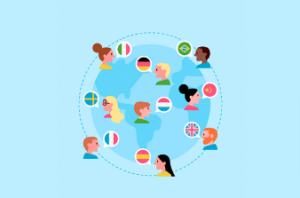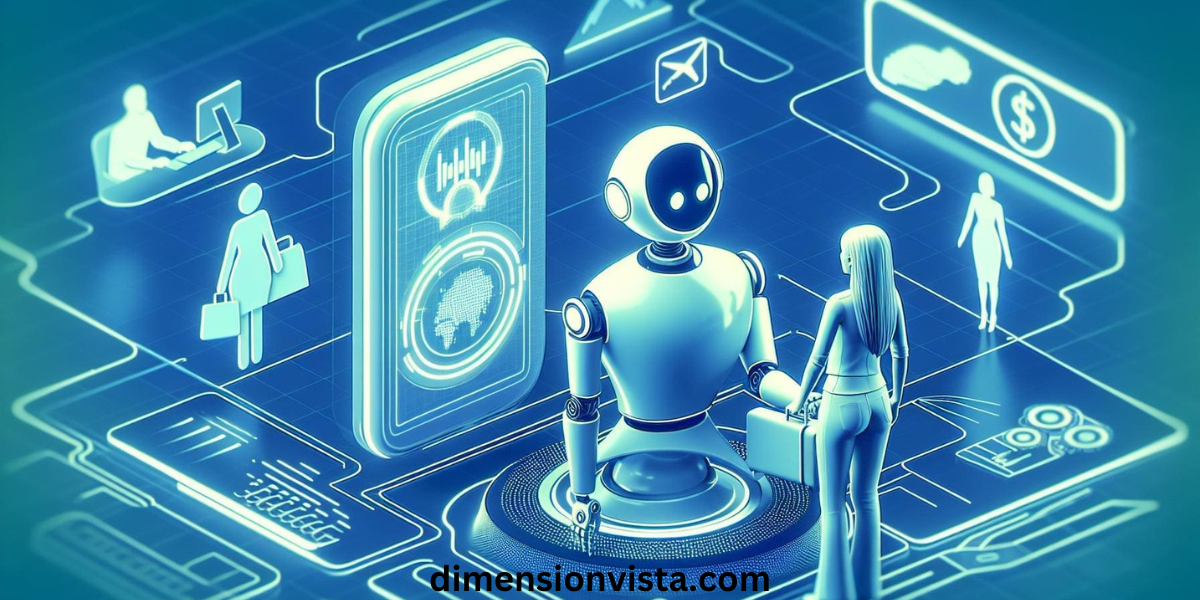In today’s digital age, customer service has become a major priority across industries. For the travel industry, which operates on a global scale and deals with millions of customers daily, delivering an efficient, personalized experience is essential. One of the most significant advancements in achieving this is the use of AI chatbots. AI-powered chatbots are revolutionizing the way travel businesses interact with customers, offering faster responses, personalized experiences, and improved operational efficiency.
But how exactly are AI chatbots transforming the travel industry? In this article, we will dive into the key benefits that AI chatbots in the travel industry, explore real-world use cases, and provide actionable insights into how travel businesses can leverage this technology to stay competitive in an increasingly fast-paced market.
What Are AI Chatbots?

Before we explore their benefits, it’s important to understand what AI chatbots are. AI chatbots are automated software programs that use natural language processing (NLP) and machine learning algorithms to interact with users through text or voice. These chatbots can simulate human-like conversations, providing responses and recommendations based on the user’s input.
In the travel industry, AI chatbots can assist customers with everything from booking flights and hotels to offering destination recommendations and providing real-time updates on flight statuses. By automating these interactions, travel businesses can save time and resources while improving customer satisfaction.
Key Benefits of AI Chatbots in the Travel Industry
1. 24/7 Customer Support

One of the primary benefits of AI chatbots in the travel industry is the ability to provide round-the-clock support. Unlike human agents, who are limited by working hours, chatbots are always available to answer questions, resolve issues, or provide travel information. This is particularly valuable in a global industry where customers are in different time zones and may need assistance at any time of day.
Example:
Many airlines and hotel chains use AI chatbots to assist customers with booking flights, checking in, or resolving issues at any hour. For example, KLM Royal Dutch Airlines uses an AI-powered chatbot named “BB” to assist customers with flight inquiries, baggage tracking, and booking changes at any time.
2. Instant Responses and Reduced Wait Times

AI chatbots excel at providing instant responses to customer inquiries. In the travel industry, where customers are often looking for quick answers, the ability to receive immediate assistance is highly valued. Whether it’s checking flight availability, providing hotel recommendations, or informing travelers about local weather conditions, chatbots can respond instantly without the need for human intervention.
Example:
In 2023, Amadeus, a leading travel technology company, introduced a chatbot that enables travelers to access instant updates about their flight status, delays, and gate changes. This reduces the frustration caused by waiting in long queues or navigating through complex airline websites.
3. Personalization at Scale

AI chatbots can analyze customer preferences, past travel history, and browsing behavior to offer personalized travel recommendations. This personalization can range from suggesting specific destinations based on past trips to offering custom-tailored hotel options that meet a traveler’s unique preferences (e.g., price range, amenities, location).
Example:
Expedia’s AI-powered chatbot “Expedia Chat” helps users with personalized hotel and flight recommendations by considering their past bookings and travel preferences. This level of personalization improves the booking experience and encourages customer loyalty.
4. Cost Savings and Improved Operational Efficiency

By automating routine inquiries and tasks, AI chatbots can help travel businesses save on operational costs. Travel companies often have large customer service teams to manage inquiries, but AI chatbots can take over many of the repetitive and time-consuming tasks. This not only reduces the need for human agents but also allows them to focus on more complex customer concerns.
Example:
Sky scanner, a global travel search engine, uses an AI-powered chatbot that answers questions, helps users compare flight prices, and provides recommendations all without the need for human agents to intervene. This automation significantly reduces operational costs.
5. Multilingual Support

AI chatbots are capable of speaking multiple languages, making them an essential tool for travel companies that cater to an international audience. By offering multilingual support, AI chatbots can break down language barriers and provide travelers with a seamless experience, regardless of their location or native language.
Example:
Booking.com’s chatbot, “Booking Assistant,” supports over 40 languages, allowing users from around the world to communicate and get travel assistance in their preferred language. This makes booking and planning more accessible to global customers.
6. Streamlined Booking Processes

AI chatbots can simplify the travel booking process by guiding customers through each step of booking a flight, hotel, or rental car. They can offer real-time availability, answer questions about pricing, and even process payments. This reduces friction in the booking process, making it faster and more user-friendly.
Example:
Lola.com, a travel management platform, uses an AI chatbot to help business travelers book flights and hotels by simply interacting through chat. The chatbot can recommend options, check prices, and complete bookings in a matter of minutes.
7. Handling High Volumes of Customer Queries

The travel industry often experiences high volumes of customer inquiries, especially during peak seasons such as holidays or special events. AI chatbots are capable of handling a large number of queries simultaneously, without experiencing delays or requiring additional resources. This scalability ensures that businesses can provide consistent support even during the busiest times.
Example:
During the summer travel season, companies like JetBlue use AI chatbots to handle thousands of customer inquiries, allowing human agents to focus on more complex issues. The chatbot can quickly assist with flight bookings, seat selections, and baggage queries.
8. Data Collection and Insights

AI chatbots can collect valuable data from customer interactions, including frequently asked questions, user preferences, and feedback on services. This data can provide travel businesses with insights into customer behavior and needs, enabling them to improve their offerings and make data-driven decisions.
Example:
Travel agencies can use chatbot data to identify popular travel destinations, peak booking periods, and common customer concerns. This helps agencies tailor their marketing strategies and improve customer satisfaction.
9. Increased Customer Satisfaction
Ultimately, all of these benefits lead to one major advantage: increased customer satisfaction. Travelers appreciate a quick, personalized, and hassle-free experience. AI chatbots provide the tools to deliver just that, ensuring that customers feel valued and heard, even if they are interacting with a machine.
Example:
Hotels and resorts have used AI chatbots to offer guests quick access to information such as amenities, room service requests, and local attractions. This level of service contributes to higher guest satisfaction and repeat business.
Overcoming Challenges with AI Chatbots in Travel
Despite the many benefits, there are also challenges that come with integrating AI chatbots into travel businesses. These include:
- Complexity in Handling Nuanced Queries: While AI chatbots are great at answering simple, direct questions, they can struggle with more complex or nuanced inquiries.
- Lack of Human Touch: Some customers may prefer to interact with a human agent, especially for sensitive issues or complicated bookings.
- Data Security and Privacy Concerns: Travel companies must ensure that customer data is securely handled by AI systems, complying with data protection regulations like GDPR.
However, advancements in AI technology are constantly improving the capabilities of chatbots to overcome these challenges. Hybrid models, where chatbots handle basic tasks and escalate more complicated issues to human agents, are becoming increasingly popular.
Conclusion
AI chatbots are rapidly becoming indispensable tools in the travel industry. Their ability to provide 24/7 support, personalize experiences, handle high volumes of queries, and reduce operational costs makes them an attractive solution for both large and small travel businesses. As technology continues to evolve, AI chatbots are expected to become even more sophisticated, offering even greater benefits for both customers and businesses.
Travel companies that embrace AI chatbots now are setting themselves up for long-term success by staying ahead of the competition and meeting the growing demand for seamless, on-demand customer service. Whether you’re a hotel, airline, or travel agency, integrating an AI chatbot into your customer service strategy can significantly enhance the traveler experience and improve operational efficiency.

